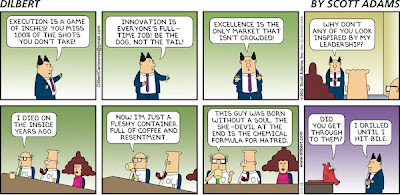Redemption
 |
| From Morguefile |
So, it wasn't quite the story I thought it would be. I expected it to be the story of a pilot who heroically saves the day when the plane crashes (a la Sully in the famous Hudson River ditching) but he's got a checkered past and, well, I thought it would be about him being framed for the crash and him trying to clear his name.
It wasn't.
It was, instead, a story of redemption. A fall from grace, the crash (both literal and metaphysical) and the aftermath, and the denouement of his life after a life-changing decision.
Yeah, I don't want to give too much away, I guess.
Here's the thing. I had been warned about the content of the film being, well, graphic. It's okay, I can look away.* I don't think you can have a story of redemption without a depiction of what a person is being redeemed FROM. I suppose it didn't have to be so graphic, yeah, and that was an "artistic" choice, I guess.
So as I was walking back from church yesterday, having just preached about Peter denying Jesus and how failing doesn't make us a failure - surely a story of redemption, it occurred to me that Peter's story is less powerful without the fall, without the failure, without the need for grace.
If he didn't deny Jesus - or if the writers of the Gospels had chosen to "sweep it under the rug" our understanding of the power of the Grace of God in Christ would be HUGELY diminished.
Sure, a worldly movie is going to revel a bit in the fallen-ness, in the brokenness - but the need for redemption was powerfully portrayed in the movie. And God was... present. Sometimes mis-represented.** But there's an air of trying to deal with questions of faith...without, you know, actually dealing with questions of faith...***
But, the point of the story remains, one of redemption. Can such a person as this redeem himself? And what does that redemption look like?
The pilot faces a terrible choice that will change his life forever. The point of redemption.
Like Saul's Damascus Road encounter with Jesus. A man who had formerly been a destroyer, self-focused and unyielding, faces a choice, a question, that changes everything. What do you choose?
Saul, who do you choose?
The answer changes everything.
And that's the thing about redemption. It's available. But we have to RESPOND. We have a choice. It doesn't always lead to easy, good, happy, rainbows and puppies.****
Often, it's the harder road.
But it's also the road to freedom...
*All the f-bombs in the world roll off my ears, but I have to turn away from images of naked women - they stick in my head and I don't want them there (Psalm 101:3) - graphic violence for violence sake is the same way, though in context - like Saving Private Ryan or American History-X or Schindler's List - I can take, more or less, even though it's painful and might stick in my brain, there's a reason we need to remember such violence...so we don't relive it... But I digress...
**A guy says it's easier to just say everything you can't control is God's fault. And there's a weird scene with a guy who talks about God having a plan even in the aftermath of the accident, but his wife/girlfriend (can't remember which she's supposed to be) shouting "Praise Jesus" like a televangelist with tourettes every thirty seconds in the background spoke to the lack of authenticity of the scene to my ear - had the film makers, writers, actors even been around those who trust in God in this way...ever? I mean, it was...bad.
***Sooooo post-modern...
****Geez, Saul, who becomes Paul, gets blinded, then accused of all kinds of bad stuff by other Christ followers, then beaten, shipwrecked, thrown out of town, you name it... Sounds like the easy road, right?


Comments